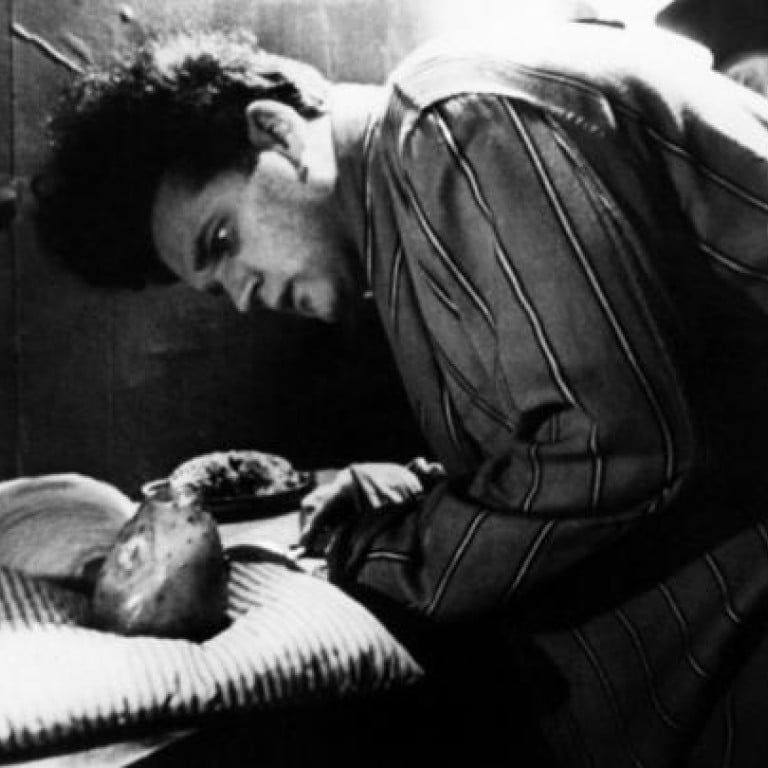
Rewind film: Eraserhead, by David Lynch
In an early episode of The Simpsons, Homer is sitting in his dark, flickering living room, spellbound by David Lynch's television show, Twin Peaks.
Jack Nance, Charlotte Stewart, Allen Joseph
David Lynch

It's another of the long-running cartoon's classic jokes, but like many of its pop-culture references, it comes from a place of pure respect: Lynch crafts films where nothing seems to make sense, yet everything feels right.
Armchair cineastes keep putting on best-ever lists and thick-framed hipsters argue about the merits of , but stands as the purest distillation of the filmmaker's work.
A black-and-white nightmare of industrial-sized proportions, s plot is simple - a man and woman struggle with their newborn child - but the execution is anything but. Creepy, disfigured men peer out of cracked windows, other-worldly planets float over frightful heads, mutant sperm shoot towards black holes, and a voice from a radiator promises heaven.
Filmed on a shoestring over five years and proudly lacking any of the Hollywood names that would influence Lynch's latter efforts, comes on like a drug-addled cold sweat. It sends audiences through 85 bleak minutes of pure working-class desperation set in a strangely familiar, yet bizarrely unreal, industrial town where the only soundtrack is white noise emanating from factories.
Does it belong to the realm of science fiction, like a post-apocalyptic forecast of Orwellian proportions? Or is it Lynch's man-child evaluation of humankind, a philosophical treatise that criticises the line between the injustices of feminism and the repulsive qualities of procreation?
Critics have long delved deep into the meaning behind Lynch's oeuvre, but it really doesn't matter. With , the director pushed the boundaries of what was acceptable in a Hollywood film. In doing so, he laid the groundwork for such surreal-within-the-mainstream filmmakers as the Coen brothers, Charlie Kaufman and even Quentin Tarantino (where would much of 's wholesome Americana concealing deep, dark horrors be without ?).
But it's probably safe to look at as a comment on Hollywood: a lone madman slogging away in a factory-like system, only to create a creature that mainstream audiences view as hideous and horrible. Not us, though - we'll put on a bow tie and dance with the forest horse in front of a traffic light any night of the week.
